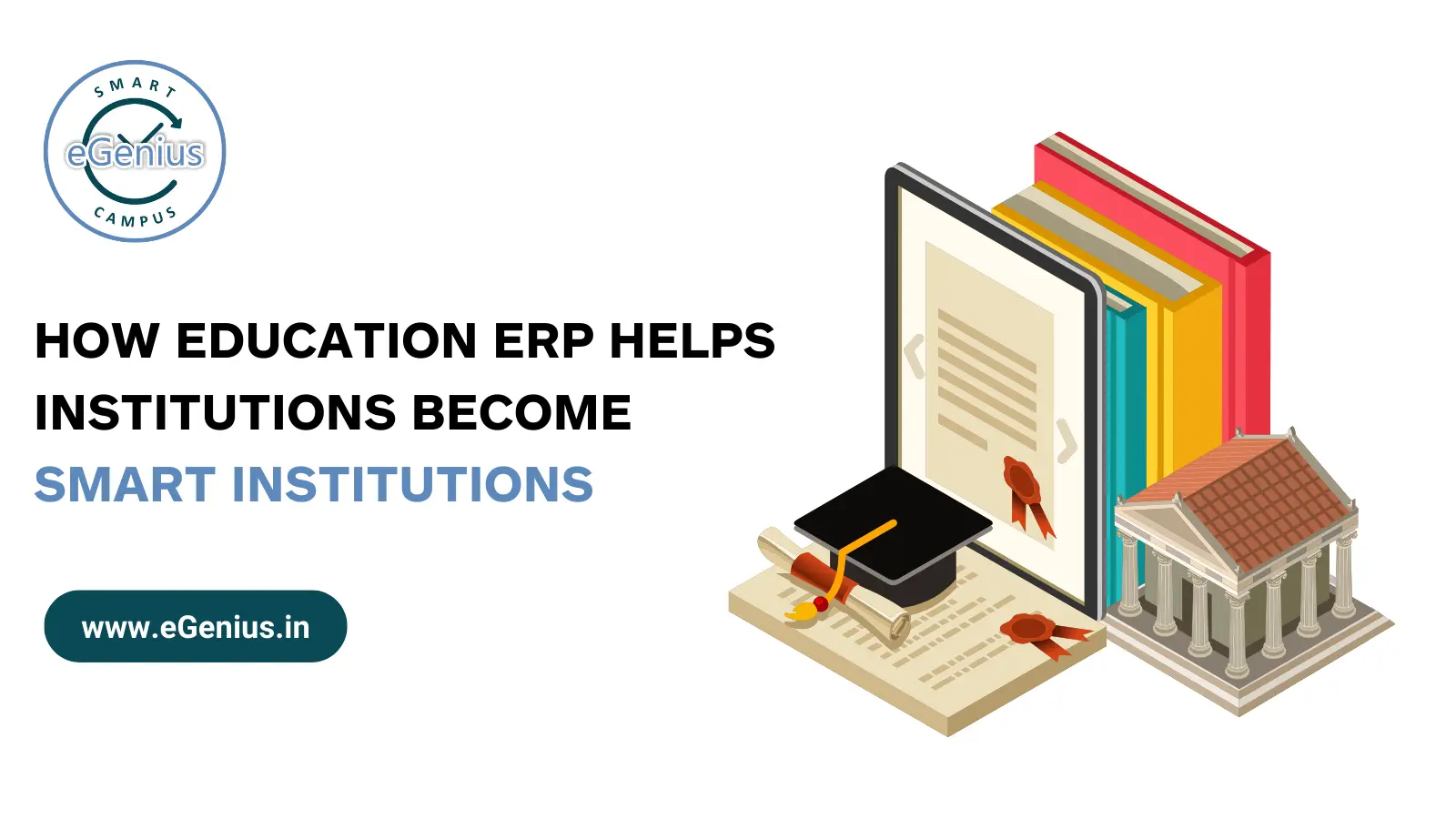In today’s rapidly evolving educational landscape, institutions strive to become “smart” to stay competitive and effectively manage their operations. ions. A “smart institution” is an organization that utilizes technology to enhance efficiency, improve communication, and make informed decisions. One pivotal technology driving this transformation is Education ERP (Enterprise Resource Planning). This blog explores how Education ERP helps institutions become smart institutions by modernizing their operations and delivering numerous benefits.
Table of Contents
1. What is Education ERP?
2. The Role of Education ERP in Modernizing Institutions
3. Benefits of Implementing Education ERP
4. Real – World Examples of Smart Institutions
1. What is Education ERP?
Education ERP is a comprehensive software solution designed specifically for educational institutions. It integrates various administrative functions such as student management, faculty management, finance, and more into a single system. By centralizing these processes, Education ERP systems facilitate smoother operations and offer valuable insights for better decision-making.
2. The Role of Education ERP in Modernizing Institutions
Streamlining Administrative Processes
Administrative tasks in educational institutions often involve complex workflows and vast amounts of data. Education ERP systems streamline these processes by automating routine tasks, such as attendance tracking, grade management, and scheduling. With automation, staff can focus on more strategic activities, thereby enhancing overall productivity.
For instance, student enrollment and admission processes are simplified through automation, reducing the time and effort required. This not only speeds up the process but also minimizes errors associated with manual data entry.
Enhancing Communication and Collaboration
Effective communication is crucial in any institution. Campus ERP systems improve communication channels between students, teachers, and administrative staff. Features like integrated messaging systems, discussion forums, and real-time notifications ensure that all stakeholders are well-informed and engaged.
Moreover, collaboration tools within Campus ERP systems allow for better coordination among departments. This fosters a more cohesive environment where information flows seamlessly, leading to improved organizational efficiency.
Improving Data Management and Analysis
Data management is another area where ERP systems make a significant impact. These systems collect and store data from various sources, providing a centralized repository of information. This data can be analyzed to generate insights that aid in decision-making.
Educational institutions can track student performance, financial transactions, and operational metrics more effectively. By leveraging data analytics, institutions can identify trends, forecast needs, and make informed decisions that drive growth and improvement.
3. Benefits of Implementing Education ERP
Increased Efficiency and Productivity
One of the most significant advantages of Education ERP is its ability to enhance efficiency and productivity. By automating repetitive tasks and integrating various functions, institutions can operate more smoothly. Administrative staff can dedicate more time to value-added activities, resulting in a more effective and efficient organization.
Better Decision-Making Capabilities
Campus ERP systems provide valuable data and insights that support better decision-making. With real-time reports and analytics, administrators can evaluate performance, track progress, and identify areas for improvement. This data-driven approach enables institutions to make informed decisions that align with their strategic goals.
Cost Savings
Implementing an ERP system can lead to considerable cost savings. By automating processes and reducing manual work, institutions can lower operational costs. Additionally, improved efficiency and productivity translate into better resource utilization and reduced overhead expenses.
4. Real – World Examples of Smart Institutions
Several educational institutions have successfully adopted campus ERP systems and reaped the benefits of becoming smart institutions. For example, a leading university integrated an Education ERP system to streamline its admissions process, resulting in a 30% reduction in processing time. Another institution used data analytics from its ERP system to improve student retention rates by identifying at-risk students and providing timely interventions.
These examples highlight how ERP systems can drive substantial improvements in institutional operations and outcomes.
In conclusion, ERP systems play a crucial role in transforming educational institutions into smart organizations. By streamlining administrative processes, enhancing communication, and improving data management, these systems offer numerous benefits that contribute to overall efficiency and effectiveness. As institutions continue to embrace technology, Education ERP will remain a vital tool in their journey towards modernization and success.
By implementing Education ERP, institutions are not only improving their current operations but also preparing for future challenges and opportunities. The result is a more agile, informed, and efficient organization ready to thrive in the ever-evolving educational landscape.
Ready to elevate your institution with smart management? Contact us today to schedule a free demo of eGenius ERP and discover how we can transform your operations!















